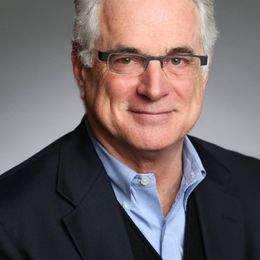Work in Retirement: Go From Customer to Employee
Turn your long-term loyalty into an advantage as a job applicant
Most Americans age 50 and older plan on working past 65, according to the new survey Working Longer: The Disappearing Divide Between Work Life and Retirement from the Associated Press-NORC Center for Public Affairs Research. Many will shift to part-time jobs. “The world definitely isn’t like it used to be when retirees withdrew from the labor force completely,” says Adam Allington, Aging Fellow at AP-NORC.
Where might you find a part-time job that you’d actually enjoy? One possibility: at a local small business where you’ve been a loyal customer and fan for years. Just ask Dan McGrane.
McGrane worked at 3M for 34 years in its health safety evaluation division. But he spent much of his spare time at Diamond Lake Ace Hardware in Minneapolis; he’s handy and loves fixing things around the house. The passion is a family affair — his sons Carl and John wound up working at that store during high school. When McGrane was nearing retirement in 2011, he asked Mark Settergren, the co-owner of Diamond Lake Ace Hardware who he’d grown to know, if could try working at another of his stores part-time — the Minneapolis one on Penn Avenue. Settergren, who’d already hired Carl to manage that one, said McGrane was welcome to pick up some evening hours there to see how we liked it. So he did.
Having a Blast at the Hardware Store
McGrane retired from 3M in 2013, at 62, and these days, works at the Penn Avenue Ace Hardware store three mornings a week, opening it at 7 am. “I’m having an absolute blast,” McGrane says.
He’s usually gone by noon, although with business booming with the spring planting season, McGrane’s putting in extra hours in May. He loves helping out customers with their projects and the comraderie among employees. (During our conversation I joked about my inability to remove a nut from a bolt without shearing it and McGrane immediately gave me a lesson.)
As McGrane demonstrates, the rewards of part-time work in retirement often go well beyond the income earned. Many boomers are eager to find jobs offering them meaning and money, purpose and a paycheck — an income and, by today’s definition, leisure. As economist Eugene Steuerle of the Urban Institute observes, a job “can be a source of social and intellectual fulfillment, particularly if older workers have more flexibility in when and where they work.”
How to Get Hired Where You Shop
When planning for your unretirement and considering where to work part-time, take stock of your neighborhood and the local businesses you frequent. Do you know owners of any of those stores, restaurants or coffee shops where you’re a regular? (The coffee shop and art store in my neighborhood would be serious contenders for me. Terrific owners. Great products — and my thinner wallet proves it.)
Take a page from something my Dad did when he retired at 74 in the late 1990s. He loved spending money at stores of small independent owners in his Washington D.C. neighborhood rather than at chains. When he retired, my dad went back to those businesses, told them he no longer worked and wondered if they could cut him a deal. They all gave him a permanent discount on future business! You aren’t looking for a discount, of course, but for a job.
Broach the topic with an owner you know well before you’re going to retire. Ask if he or she would consider hiring you part-time when you finally leave your current position, given how familiar you are with the business. Find out where you might be helpful — behind the counter or helping to keep the books. Plant the seed of an idea.
Like McGrane, maybe you can test things out by working a sideline job while you’re still working full-time, racking up a few hours at night or on the weekend. That way, both you and the owner can see if you’ll be a good fit.
In my experience, small business owners are more willing to devise flexible schedules for their employees, especially if they’re reliable employees and know the products or services. (The new Next Avenue article on finding or creating flexible work, by my colleague Nancy Collamer, echoes this.)
Odds are a loyal customer will turn into a valuable part-time employee. Isn’t that the definition of a win-win deal?


